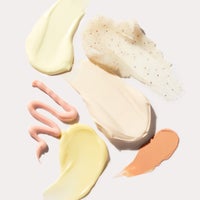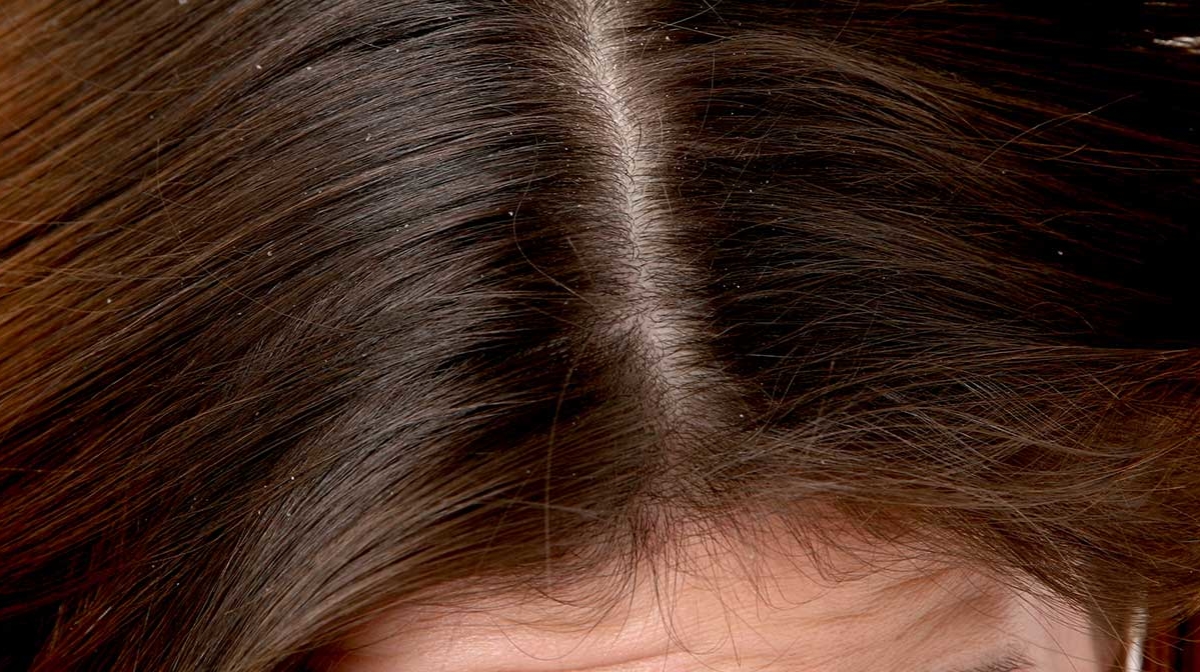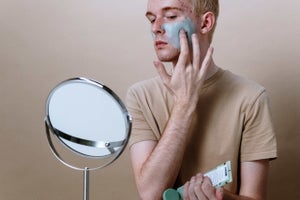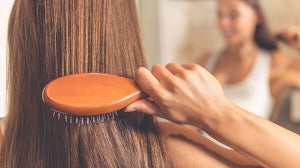
A crusty scalp is an unpleasant symptom that can be very uncomfortable. Scalps that crust are also typically red and itchy. For Black Friday, you can get 25% off many professional scalp and hair care brands when you enter the code CYBER at the checkout, when shopping for a solution.
In most cases, crusting and scaling is due to one of two conditions: seborrheic dermatitis or scalp psoriasis.
These conditions can sometimes be difficult to differentiate from one another since crusting, scaling, itching and scalp redness are features of both conditions. Psoriasis of the scalp usually involves areas of the body other than the scalp, whereas seborrheic dermatitis is often confined to the scalp and face. The scales also tend to be looser and easier to remove with seborrheic dermatitis.
Psoriasis
The cause of this sometimes disabling skin and scalp condition isn’t completely understood. The most likely explanation is that immune cells called T-cells that normally protect the body against foreign invaders attack normal skin cells. This causes an inflammatory response that increases skin cell production. Skin cells start to accumulate on the surface of skin, leading to the scaling and crusting that are typical of this disease. Both genetic and environmental factors play a role in this disease. Once a person is diagnosed with this disease, it tends to be chronic, although the symptoms may come and go.
Seborrheic Dermatitis
As with psoriasis, genetics and environmental factors contribute to this common scalp condition. And as with psoriasis, the exact cause isn’t known. One theory is that a yeast called Malassezia plays a role in seborrheic dermatitis. This yeast is a normal inhabitant of the scalp and doesn’t typically cause problems. People with seborrheic dermatitis seem to be sensitive to this yeast, and the yeast trigger an inflammatory reaction that leads to scalp crusting, scaling and itching. This condition is more common in people who have immune problems and in people with certain neurological diseases such as Parkinson’s disease.
Treatments for Crusty Scalp
Psoriasis
Medicated shampoos that contain coal tar or the anti-fungal medication ketoconazole are often helpful for treating mild cases of scalp psoriasis.
To get maximum benefits, leave shampoo on the scalp for at least five minutes before rinsing and repeat. Topical corticosteroids in the form of a shampoo or foam help to relieve the itching but are best used in moderation and for short periods of time due to potential side effects.
Salicylic acid shampoos also help to remove dead skin cells that contribute to crusting and flaking.
Other treatments that are effective include vitamin D analogues and retinoids. They work by decreasing the overproduction of skin cells that contribute to the scales and crusting. Shampoos and other products that contain salicylic acid also reduce the build-up of skin cells that cause crusting and scaling.
Exposure to sunlight improves the symptoms of psoriasis. This is the basis for phototherapy, a treatment for psoriasis that exposes the skin or scalp to controlled amounts of ultraviolet light. There’s also some evidence that eating a diet that contains more omega-3 fatty acids from sources like wild salmon improves psoriasis symptoms. Taking measures to relieve stress, reducing alcohol consumption and avoiding temperature extremes may also help. Certain medications and infections can make the symptoms worse.
In severe cases, doctors sometimes prescribe oral medications that suppress the immune system. These medications are best used only in cases that don’t respond to other treatments due to side effects.
Seborrheic Dermatitis
Shampooing with a formulation that contains pyrithone zinc or selenium sulfide is the first-line treatment for scalp crusting due to seborrheic dermatitis.
Salicylic acid shampoos also help to remove dead skin cells that contribute to crusting and flaking.
For a more natural approach, research suggests that shampoos containing tea tree oil are effective for treating seborrheic dermatitis. In cases that don’t respond, doctors sometimes recommend a shampoo that contains the anti-fungal medication ketoconazole and topical corticosteroids to relieve the itching.
If there’s no improvement, oral ketoconazole is an option. As with psoriasis, eating more fatty fish rich in omega-3s may help. Good scalp hygiene is critical for treating a crusty scalp due to seborrheic dermatitis. It’s also important to eat a healthy diet, reduce stress and get enough sleep. Infections and other illnesses, fatigue and a poor diet can all make the symptoms worse. In some cases, certain foods are a contributing factor. It may help to keep a food diary for a few weeks.
The Bottom Line?
A crusty scalp is usually due to one of these two scalp conditions, which are often difficult to distinguish from one another. If there’s any question about the diagnosis, see your doctor.
| Love Skincare? discover our edit of how to treat scalp bumps. |








